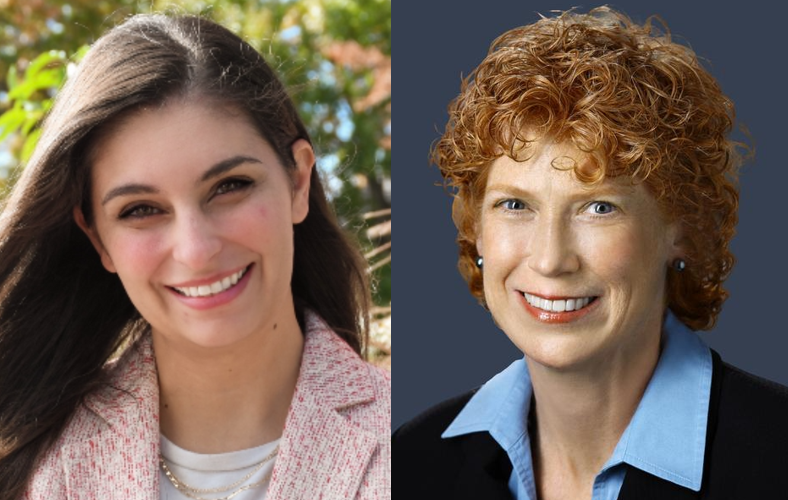Georgetown University’s Initiative on Catholic Social Thought and Public Life, an effort to promote civil and substantive dialogue on Catholic social teachings, invited community members to learn about the intersection of healthcare and Catholic values at an April 11 seminar.
The talk, entitled “Care for the Whole Person, Care for All People,” featured a discussion between two Catholic physicians: Dr. Eileen Moore, a professor of medicine and internist at MedStar Georgetown University Hospital, and Dr. Claudia Sotomayor, an assistant professor of internal medicine at Georgetown University Medical Center.
Christian Soenen, the projects manager at the Initiative on Catholic Social Thought and Public Life, said that the Initiative’s commitment to applying Catholic principles like solidarity and the common good to domestic and international issues includes integrating those values with health ethics.
“Catholic social thought offers principles that can guide people through these complicated decisions and guide the practice of medicine with a special attention to human dignity, a priority for the vulnerable and a deep solidarity that should accompany any vocation of care,” Soenen said at the event.
According to Sotomayor, connection and solidarity between faith and medicine can help health care providers in the face of a health crisis.
“We need interrelationship to flourish,” Sotomayor said at the event. “I cannot put it better than John Paul II. He said, ‘Interdependence must be transformed into solidarity. We need to be attentive to which one here needs help the most.’”
Moore said that Catholic social thought can help providers care for the whole patient rather than maintaining a solely clinical perspective.
“Eighty to ninety percent of a human being’s health has nothing to do with what we see as health care providers,” Moore said at the event. “We must practice with our eyes wide open and take all that in for our patients.”
Sotomayor said that Catholic teachings like respect and unity promote care of the whole person, or cura personalis, which can guide health care workers toward greater patient understanding.
“From the protection of human dignity to solidarity, everything is there, in the foundation of Catholic health care,” Sotomayor said. “Catholic love will lead you to be aware of the needs of others.”
Moore described how doctors ought to look more closely at the health care needs of vulnerable populations, especially communities with mistrust in the health care system. For example, a 2021 study reported a correlation between perceived discrimination due to race, ethnic background, language, income or insurance status and higher odds of medical mistrust among adult patients.
According to Moore, doctors can only get ahead of “anti-treatment” ideas by instilling trust in their patients and immersing themselves in communities that lack health care.
“We go into places where there’s not a lot of health care going on, and we seek to practice with our eyes wide open,” Moore said. “Looking at all those pieces of health that start before we get into anything medical is also the only way we can get upstream of the chronic illness of ‘anti-treatment’ at the end of the day.”
The physicians also discussed ways that medical students, including those at Georgetown, are becoming increasingly involved with the policy side of healthcare. At Georgetown’s School of Medicine, for example, students can participate in Hill Day, meeting with lawmakers from the House of Representatives and Senate to discuss medical policy.
Moore said that policy-oriented efforts like Hill Day are examples of the “care for the whole person” value Georgetown celebrates.
“That’s a special part of what goes on at Georgetown. We really try to take Catholic social thought and move it into health care policy and advocacy on a regular basis,” Moore said. “I feel strongly that that’s part of who and what we’re called to be — we’re supposed to take care of everybody, and to take care of the community and the folks that are in those incredibly vulnerable situations.”
Soenen said he hopes to see all of these aspects of Catholic thought applied within the healthcare sphere.
“Solidarity, preferential options for the poor and vulnerable, the common good and the dignity of human life are principles that should guide decisions that affect all of society,” Soenen said.









